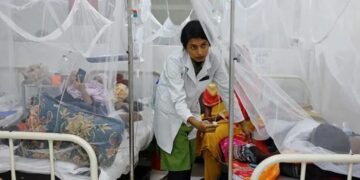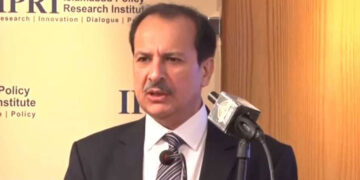The health ministry of Pakistan has alerted health authorities to remain on forefront as the National Institute of Health’s (NIH) National Command and Operations Centre (NCOC) has recorded 15 cases of COVID-19’s JN.1 variant.
The information about the following has been confirmed by the health ministry of Pakistan. While informing on the same, the spokesperson for the health ministry of Pakistan, Sajid Shah, quoted the caretaker minister of Health, Dr Nadeem Jan as stating that the situation was “being monitored carefully, with the border health services, national and provincial health authorities, and the labs functional and alert.”
Classified as the variant of interest (VOI) by the World Health Organization (WHO), the JN.1 is a sub-lineage of the Omicron variant and is more transmissible than other circulating variants. It has spread to over 40 other nations.
The spokesperson for the ministry of health, further quoted Dr Nadeem Jan as adding that an “effective screening system” was in place at all the entry and exit points of the international airports in the nation.
Eight of the reported cases from among 15 total were detected by the lab at the NIH, five by Karachi’s Aga Khan University Hospital and two by Karachi’s Dow University of Health Science, says Shah.
The health minister was further quoted as stating that the ministry was looking for the situation on a special basis and was ensuring that all the required steps were being taken to protect the public from the new variant. The federal government was in link with its provincial counterparts.
In order to stop the spread of JN.1, the NIH and the Islamabad Healthcare Regulatory Authority (IHRA) have issued advisory to ensure the timely preventive and control measures.
According to the advisory released by NIH, “JN.1 has been classified by the WHO as a VOI with genetic changes predicted or known to affect virus characteristics such as transmissibility, disease severity, immune escape, and diagnostic or therapeutic escape.”
Meanwhile, the screening process at the international borders had also been increased at the start of January month.



























